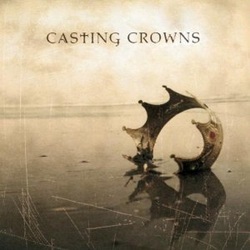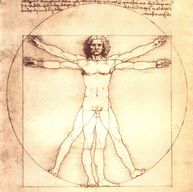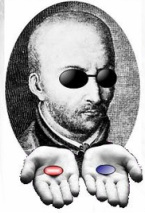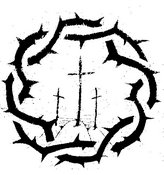|
In Alvin Plantinga’s 1980 address to the American Catholic Philosophical Association “The Reformed Objection to Natural Theology”,[i] the proposition God exists is declared to be properly basic by the reformers and as a result natural theology—the arguments for God’s existence—is unnecessary. Following a brief summary of Plantinga’s paper, three benefits of properly basic beliefs will be outlined, and then three reasons will be presented as to why the complete rejection of natural theology using Plantinga’s account of properly basic beliefs simply goes too far.
Plantinga points out this conclusion by establishing that the Classical foundationalist approach of knowledge (commonly attributed to Plato through Aquinas and then a modified form to Descrates through the 20th Century) required all knowledge be built upon certain foundational propositions—namely those that are either self-evident, evident to the senses, or incorrigible—made natural theology necessary. However, reformers like John Calvin rejected Classical foundationalism (in lieu of a form of weak foundationalism) on the grounds that God exists is a foundational proposition per scripture but does not fit the requirements to be a foundational proposition (that is the existence of God is not self-evident, evident to the senses, or incorrigible). As a result, since theologians no longer need to work with foundational principles to arrive at the knowledge of God natural theology becomes unnecessary. Joseph Boyle’s response to Plantinga concisely captures the line of thought: “The Christian knows God exists. Natural theology makes sense only if God's existence is not in the foundations. But it is.”[ii]
3 Comments
Most of my Spring Semester was consumed researching and writing this. Enjoy... (a PDF can also be found in the Academic Section). Abstract: By reviewing attempts by the Eastern Orthodox Church, the Roman Catholic Church, Evangelical Churches, Protestant Neo-Orthodoxy and the recent contributions of Speech Act theory on divine discourse to reconcile the two forms of the Word of God (The Written Word and the Living Word), this paper aims to address how the gap between mankind and the transcendent God can be bridged to allow for the proper order of metaphysics leading to epistemology without denigrating God’s Word by answering the question: is Christ as the illocution of God the essential link between ontology and epistemology, and thus the starting place for Christian systematic theology? Overview:
An analysis of Christ's Mission in Matthew 16:13-28 will help Christians to examine what influences their theology. There is too much in this passage to cover in 20 minutes, so a narrow focus is drawn from the parallel situation in Christ's day about maintaining a proper perspective and putting priorities straight in light of the Mission of God and the politics of the day. Christians need to ensure that political stances and agendas are the direct result of biblical principles in light of Christ's Mission and not culturally conditioned preconceptions supported with a smattering of proof-texts lifted from random parts of the bible. Preached on election day, 11-06-12.  Wonder where the band's name originated? Craig Blomberg's Degrees of Heavenly Reward in the Kingdom of Heaven? in terms of Dogmas, Doctrines, Distinctives, and Details.* Dogmas. Blomberg does a fabulous job of revealing the dangers that “heavenly rewards” poses to the essentials of Christianity. He not only asserts salvation by faith in Christ alone (159) in this life (172) but also that Heaven will not open for those who “flagrantly repudiate Christ without subsequent repentance” (163). Blomberg rightly warns that the threat is not contingent upon whether one believes in “heavenly rewards,” (165), but that one's profession of faith may prove to be entirely vacuous, thus excluding them from Heaven because they thought that the lack of fruit in their lives indicated the absence of future rewards, not the absence of their salvation (172). “Saving faith does over time lead to a visible transformation in lifestyle and to growth in holiness” (172) for a tree is recognized by its fruit! The “prosperity gospel” is a false gospel, for health and wealth supplant Christ crucified.  Religion How does Man receive salvation? This has been the primary question of every culture since Man can remember. Thus, every religion provides a way to save ones self, except Christianity, which states humans cannot save themselves and require a savior.  Faith in Jesus Christ The Gospel Message. Who is saved? While this is not a question Christians should be asking, it is probably the question most frequently asked. The answer is those who've heard and truly responded to the Gospel. The Gospel appears throughout Scripture as it is contextualized for various cultures (Luke 24:44-49; Acts 2:14-39; Acts 17:22-31; 1 Corinthians 15:1-11) and can all be distilled to these basic tenets: Every person has broken their relationship with God due to sin and the punishment for sin is physical and spiritual death (Romans 6:23). However, God's mission has been to seek all humans in order restore His relationship with them. Thus, God became a man, His son Jesus Christ, to take the penalty for sin and offer His right standing so that whoever has faith that Christ took their sin and repents will receive forgiveness for their sins. Those who have been saved are called to proclaim the Gospel to all others. Accepting the Gospel is a spiritual transaction, not an assent of belief, opinion, or understanding. Hence, anyone the transaction has been conducted for is saved, even if their theology of the process is deficient.  Is Man basically good? Or evil? One's worldview ultimately boils down to whether or not mankind needs to be regenerated or not. The logical outflow from there informs the rest of an individual's beliefs. If humans don't need to be regenerated, how does one account for evil? Does evil exist at all? If humans do need to be regenerated, what has corrupted them? How are they restored? Thus, the origins of Man and his actions are foundational to the understanding Man's present condition and next steps.  One of the blessings, or curses, of being human is the ability to question our very existence and then the nature of that existence. Whether humans choose to believe we are simply the most highly evolved life-form or the crown of God's creation, both materialists and theists have to agree that there is something unique about the creature known as Man1.  Eschatology, the study of last things or the end of the world, has been an unnecessary stumbling block and source of division within the church. Believers should approach the topic with grace and charity, especially since many details about the end are derived from apocalyptic literature which tends to be metaphorical and vague. Fortunately, there are areas within eschatology in which all should agree (dogmas), areas of flexibility (doctrines), and areas of freedom (details).  Luis 'Morpheus' Molina Have you ever wrestled with the issue of God's sovereignty, with Calvinism (TULIP) and Arminianism on opposing sides? It's a tense debate that has raged since the 16th century, and the root of the problem is choice (free will). Church history reveals that others have dealt with the subject as well, including Luis Molina in his disputations (in Latin): Concordia liberi arbitrii cum gratiae donis. Disputatio 47-53 Since Molina on divine foreknowledge: part IV of the Concordia is Scholasticism in full gear it can be a challenging read, but it's the subject matter of dealing with "how does God know what knows" that can make you feel a lot like Alice...tumbling down the rabbit hole. Here is a brief overview of his work, and the foundation of Molinism, if you'd like to see how deep the rabbit hole goes.  Every human being has to decide who Jesus Christ was and is. Many try to cast him as a good moral teacher, but in reality this view is either a sign of naivety since the individual must be unaware of what Jesus said, or is a contradiction since the individual doesn't actually want to believe what Jesus said. C.S. Lewis accurately lays out man's only three responses in Mere Christianity to the outlandish things Jesus claimed, that He is: a lunatic, a liar, or He is Lord. Taking Jesus at face value and believing the thins he said about Himself has created the orthodox view of Christ, which rightfully concludes the He is the Lord.  Throughout history as man looked at the created world he has asked “Why does something exist instead of nothing?” Answers range from luck to a creator, but each view implies certain facts that must fit the characteristics of the world and its creator (if it has one). It is by comparing these views that the importance and necessity of God and His attributes become clear when revealed through the flaws of man's best attempts to explain his world.  Logically, to know anything with absolute certainty one must know everything about everything through all time to know with certainty that no new information will debunk what is known about something; unless, someone who does know everything about everything with absolute certainty conveyed to us some true facts about the universe. Of course, the only being with unlimited power to ascertain such unlimited knowledge would necessarily have to be God.  A web of intertwining beliefs Theology is the formal study of God (or gods in theologies of other religions), and/or a collected understanding bout God and his ways. Christian Theology, founded on Scripture, deals with the study of the one True God who created this world and his current and historical redeeming actions. Just like the study of any other historical event this inevitably leads us to ask “what actually happened?” or what is the Truth (Veritology). Since “Truth by definition is exclusive,” so too there must exist one True theology of who God is and what his ways are. However, that True theology (due to God's ways and understanding being far above man's ways and understanding (Isaiah 55:9)) is beyond the reach of man in his fallen state. While it is impossible for any one person or tradition to claim they hold the True theology without doubt, all theologies should ultimately be measured by their proximity to the Truth of who God is and what his purpose for this world is as outlined by scripture.  What impact did the “five solas” of the reformation have on the 16th century? Are they still valid foundational aspects of the faith? As a 21st century reformer, what would your five solas for today be? Theology is like armor. It protects from false teachings and the devil's schemes. In the 16th century, the reformers discovered the armor they unquestioningly accepted from the Roman Catholic Church left them unable to stand when the day of evil came. Thus they threw it off and reforged Christian theology with “five solas.”  The Problem of Evil: How could a good God create a world that contained evil? Scripture addresses the problem of evil directly in the book of Job and delivers a key message: that God is trustworthy even when we don't understand him (Job 13:15), but it stops short of explaining the reason for evil's existence. Sadly, this response, and Isaiah's response that God's ways and thoughts are higher than ours (Isaiah 55:8-9), are not enough to answer the inquiring minds of seekers and skeptics. Thus, theodicies are developed, not to question God's sovereignty, but to try and know the mind of God (using our limited understanding) and hypothesize (like good science) why evil exists in the world.  Sherlock Holmes (2009) A) What the film declares about the current worldview (specific details) The 2009 detective film “Sherlock Holmes” espouses the naturalism worldview and indirectly attacks theism (namely Christianity) through the film's plot, visuals, and dialogue. The plot revolves around Sherlock Holmes unraveling the mystery of a man's resurrection from the dead. Of course, while others tremble at the apparent supernatural event, the eccentric scientist Sherlock is unphased, and sets to determining not if, but how a man could be resurrected. Clearly operating from a naturalistic worldview, he begins asking the pertinent question of, “What are the facts?” which sum up a key line from the film: “It's a huge mistake to theorize before one has data. Inevitably, one begins to twist facts to suit theories, instead of theories to suit facts.” The film's unsaid assumption is that once one has the facts, all supernatural theories will be put to rest at the feet of Naturalism and reason.  What was the most frequently asked question during the heretical controversies of the 4th century? Is this question still relevant today? How so? What does the bible say? The church found it just as hard to nail down Jesus as the Romans did, as the issue of exactly who Jesus is (Christology) refused to die and rose up time and time again.  What is the church? Compare the NT church with that of the illegal, imperial, (medieval) ages. What is your definition of Church? A distinction must be drawn between The Church vs. A Church. The Church consists of Christ's true followers in all the earth and in all time regardless of denomination. A Church is one part of The Church, as a community of Christ Followers fulfilling The Great Commission. |
AuthorBrett Yardley: Categories
All
Archives
January 2019
|

